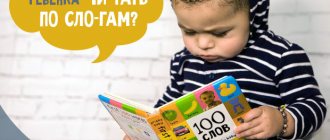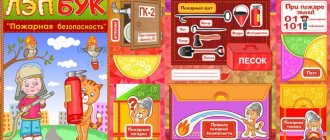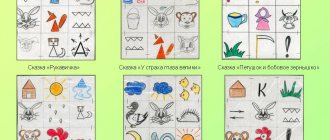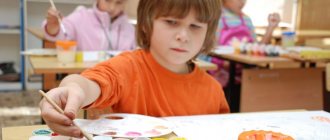Every parent wants to see their child happy and successful in the future. But are we doing everything for this? After all, our children will have to live in a world where possession of the necessary information decides almost everything. Do they know enough about the world of finance? Do they know how to properly handle and protect money?
This article is dedicated to the topic of financial literacy for children. In it you will learn how to properly introduce preschoolers and schoolchildren to the world of finance, what economic concepts a child should know, and also receive a lot of useful materials on financial education and awareness.
Content:
- What is financial literacy?
- Financial education of children What is the importance?
- What should a child know?
- Financial and economic games
- 10 Best Financial Literacy Books for Kids of All Ages
What is financial literacy?
Financial literacy is the knowledge, skills and abilities that a person needs to make smart financial decisions, as well as to achieve financial well-being.
A financially literate person is a person who:
- knows how to competently handle funds, preserve and increase them;
- keeps records of income and expenses;
- navigates the economic situation of the country;
- can recognize signs of financial fraud;
- fulfills its obligations as a taxpayer;
- knows how to navigate banking services.
For a long time, it was believed that financial literacy was necessary only for employees of financial institutions. But a 2017 survey by the National Financial Research Agency found that people are increasingly complaining about a lack of economic and financial knowledge that would help them, for example, avoid taking part in dubious financial transactions. And only 12% of respondents believe that they have a sufficient level of financial awareness.
Therefore, our country is now actively pursuing a policy to increase financial literacy among the adult population and the younger generation. Special literature is published for children, and economic games and applications are created. Information sites and online courses on personal finance management are intended for adults.
Financial education of children
What's the importance?
The world of finance seems far from a child only at first glance. In fact, children are included in the economic life of the family very early. When they go to the store with their parents, watch advertisements on TV, they receive an envelope with money as a gift from their grandparents.
Therefore, it is important to introduce children to financial and economic relations as early as possible, starting from 5-6 years old. By this time, they begin to develop logical thinking and increase interest in the adult world.
Financial literacy is developed as a child grows up and goes through various life stages: the first independent trip to the store, paying for travel, receiving pocket money, etc.
What should a child know?
Now let's talk about what children should know about the world of money and finance. All information can be divided into 5 large groups.
The first group is knowledge about money:
- what kind of money is there?
- how you can use money;
- how to count money correctly;
- spending money wisely;
- how to learn to save money;
- ways to protect funds.
The second group is knowledge about needs:
- what are the needs;
- desires and capabilities of a person.
The third group is knowledge about the product:
- familiarization with the concepts of “price”, “purchase”, “sale”;
- what determines the price of a product;
- how to determine the quality of a product.
The fourth group is knowledge about work:
- what kind of work there is, getting acquainted with professions;
- how to determine the product of labor;
- remuneration, familiarization with the concept of “wages”;
Fifth group – knowledge about the budget:
- what is a budget, what does it consist of;
- family expenses and income;
- what sources of income may be;
- ways to save your budget.
This information will help the child become familiar with and navigate basic economic concepts.
Financial literacy games for kids
Game 1 “Children are thinking”
Ask children questions. The game develops speech, thinking and horizons.
For example: How do you understand...
- What is money?
- What is money called in Russia?
- What is a bank?
- What is an ATM?
- Why do you need a plastic card?
- What kind of money is there?
- What would you do if you had a lot of money?
- What is income?
- What are expenses?
- Do you need to save money?
- What happens if you buy everything you want?
- What are necessary expenses? Find them on this list.
- Electricity and water for the home
- Magazine, cinema tickets
- Meat, fish, vegetables and fruits
- Cake, cookies, soda, candy
- Phone and internet bills
- Warm shoes and jacket for winter
- Attractions
- Bus pass
- Lottery ticket
- Books for school
Game 2 “Guessing riddles”
1. Small, round, jumps from pocket to pocket, leaps ahead of the whole world, is good for nothing, but needs everything. (Coin)
2. How they don’t take care, but get shaken. (Money)
3. There are 100 of us sisters in a ruble. We go through a lot of hands. They lose us and change us, and sometimes they scold us. One sister will disappear, and you'll see there's no ruble. (Kopeyka)
4. Name not just one, but three kopecks in the old days. (Altyn)
5. What they check without leaving the cash register. (Money)
6. He was born in America and set out to travel. Since then he has been walking around the world, Knowing his worth everywhere. They trade with him, manage him... What does everyone call him? (Dollar)
7. To consume food, to flaunt in fashionable dresses, to eat and drink deliciously, you need all this... (Buy)
8. We are born into the world in abundance for everyone. Some have a lot of us, while others don't. (Money)
9. We put them in our wallet and go to the store with them. Take at least something in return for them, except honor and love. (Money)
10. Each of them has dignity, And according to it they give honor to each - A pinch of one, a pound of the other. But, of course, I won’t compare them: Without the little one, there won’t be a big one. And you have had to meet someone like this. (Money)
11. People go to the market. Everything is cheaper there. (Goods)
12. The product must have...(
Price
)
13. They will be intact, like in a tank, Your savings will be in... (
Bank
)
14. Both the doctor and the acrobat are given for work... (Salary )
15. From what apparatus are our salaries issued?(
ATM
)
16. To store my income, For pocket money, I need Piggy, The one with the hole in the back. (TO
sawdust
)
Game 3 “Complete the phrase”
Complete the phrases:
- The coin is round, and the banknote….. (rectangular)
- The banknote is paper, and the coin is ....(iron, copper, metal)
- The coin rings, and the banknote…. (rustles, rustles)
- The coin is metal, but the banknote is... (paper)
Game 4 “Phraseological units”
- Spending money......spending a lot of money thoughtlessly
- Suitcase of money......have a lot of money
- Money doesn’t smell...... you can earn it with any work
- Money to money…… save up a small amount
- Money is like birds, it flies away and then it comes... today there is money, but tomorrow it is gone, it’s all spent
- Money doesn't bite......a lot of money
- Swimming in money......a lot of money
Game 5 "Shopping"
Clap your hands if money can buy this product. Stamp your foot if you can’t buy it.
House, candy, book, ice cream, happiness, mother, flowers, telephone, sun, milk, health, scooter, air, planet, laughter, dream, table, bicycle.
Game 6 “Solving financial problems”
You will find colorfully designed financial problems for the development of logic and mathematical abilities in this interesting book.
O. Naumova “Financial literacy for preschoolers”
A modern, useful guide for preschoolers and primary schoolchildren. The book is written in a fun, playful way and teaches kids practical life skills for handling money. All tasks in the book are related to money and its practical application in life.
The book promotes:
- development of mathematical abilities;
- development of logic;
- attention training;
- mental arithmetic training;
- development of problem solving skills;
- training fine motor skills of the hand, etc.
Result for the child:
- learn to count money;
- learn to solve your first economic problems;
- it will be better to navigate in real life when making various purchases;
- will not experience difficulties when meeting financial problems in a mathematics course;
- will train attention and logic.
The book will be of interest to children aged 5 years and older. The tasks in the manual can be used both individually and in group work.
I hope the article was useful to you. I also recommend that you read other useful articles in the PREPARATION FOR SCHOOL section.
Sincerely, Olga Naumova
Introducing preschoolers to the world of finance
Psychologists advise starting a conversation about finances when a child becomes interested in it. Usually this is the age of 5-6 years. Children's questions must be answered at a level accessible to the child.
- Teach your child about the basic needs of the family
The son or daughter must come to the understanding that not all desires can be satisfied and that the money earned by the parents is spent on certain needs.
- When planning a store visit, make a shopping list with your child
If he doesn't know how to write yet, let him draw pictures. In the store, stick to this list and ask your child to help you choose a product. This will distract the baby from persistent requests to buy another toy or sweet.
- Teach your child to choose the right product and pay attention to quality and expiration date
- Introduce your child to the professions of all family members, tell them about specific responsibilities
If possible, take a tour of Mom or Dad's work. Explain that every work is important and useful.
- Do not leave things or toys damaged by your child without attention.
Explain that you can’t buy a new car because the money has already been spent on the one he broke. Offer to find a way out of this situation. For example, fix a damaged toy together.
Since preschoolers’ main activity is play, this means that the basics of financial literacy will be better learned in a playful way.
Teachers suggest using the following financial and economic games:
"Shop"
The child and adult alternately play the roles of seller and buyer. Both real objects and their images can be used as goods.
With children under 5 years old, it is better to use candy wrappers, pieces of paper or stickers as “payment” for goods. Older children can already “pay” for goods with real money: coins or bills that they receive from their parents.
"Bank"
The game introduces the child to the structure of the banking system and basic banking operations. Before this, it is recommended to take your son or daughter on an excursion to a real bank.
The child and the adult alternately take on the roles of a cashier and a visitor who needs to take out a loan, open a deposit or deposit money into an account.
Such role-playing games help children develop the necessary algorithm of behavior and master the culture of relationships between people in financial institutions
"Professions"
The child gets acquainted with various professions through games and activities in kindergarten.
Parents, in turn, can tell him about the work of each family member and play an entertaining game that reinforces the acquired knowledge.
The baby is offered cards with various objects and tools. His task is to determine which profession person needs this item and why.
"Getting to Know Money"
In this game, an adult introduces a child to bills and coins and teaches them to count correctly.
You can instruct your child to put small coins in a special jar, and at the end of the week count how much has accumulated.
Formation of financial literacy in older preschoolers through gaming activities
Financial education and education of preschool children is a new, but important direction in preschool pedagogy. Already at preschool age, children are connected to the economic life of the family: they encounter a variety of advertising, money, and make purchases in the store with their parents. As a result, they master the basics of economic knowledge. Children of senior preschool age need to instill a sense of responsibility and duty in all areas of life, and the financial sphere is no exception. In the future, this will help them correctly plan their financial transactions and distribute their budget. It is during this period that the primary experience of orienting children in elementary economic phenomena is acquired, and an economic basis is formed in the creation of future economic thinking.
Financial literacy is a person’s ability to manage their income and expenses, to make the right decision on the distribution of funds, in other words, the ability not only to spend, but also to preserve and increase their financial resources.
In preschool age, financial literacy means instilling in a child frugality, efficiency and rational behavior in relation to simple exchange transactions, a healthy value assessment of any results of labor, be it goods or money. As well as developing in a child a correct idea of the financial world, which can help him become an independent and successful person who makes competent, informed decisions.
Of course, a preschool child will not master this area on his own, but with the help of a teacher and parents, traveling to this new amazing and interesting world, he will gain accessible knowledge from the field of economics, understand what place it occupies in the world around him, where and when people meet with her.
A.D. Shatova’s program, which I use in my work, is designed for a teacher to work with children in the context of public preschool education, although, undoubtedly, a child takes his first steps into the world of economics in the family. It is in the family that he first learns the price of labor, income and expenses, the advantages of material well-being, prosperity and the disadvantages of poverty.
Therefore, the joint work of teachers and parents is simply necessary for the successful economic education of preschool children.
What can become the content of economic education in the family? This is primarily the household (parents' home activities, relatives' professions, etc.), family budget (income, expenses, salary, pension, scholarship), pocket money.
How to properly introduce children in a preschool institution to the financial component of life relationships?
A preschool educational institution is assigned tasks that contribute to the formation of financial concepts among preschoolers:
– this is the creation of conditions for the formation of basic economic ideas;
– developing children’s interest in aspects of financial literacy and the application of this knowledge in life;
– enrich the vocabulary of preschoolers with basic financial and economic concepts appropriate to their age;
Classes on developing the foundations of financial literacy among older preschoolers broaden their economic horizons, arouse interest in economic phenomena, expand their conceptual vocabulary, and cultivate hard work, frugality, and thrift.
A preschooler’s mastery of financial concepts is more effective if the principles of consistency, complexity, gradualism and regularity in mastering, and differentiation when choosing the pace of work are observed.
Smolentsova A. A. believes that gaming activities are of great importance for the formation of financial literacy in preschool children. During the game, children easily learn about the world of social reality and become familiar with the world of finance.
All children love to play. The peculiarity of the game is that it easily develops from entertainment into learning. Play for preschool children is practically the only type of activity where they can show their initiative, creative activity, and at the same time their actions will always be aimed at personal development: feelings, will, behavior. Children who have extensive play practice in a preschool institution adapt more successfully to school and cope more easily with life’s problems. The game helps children satisfy their need to be like an adult, to realize their fantasies, which are difficult and sometimes even impossible to realize in real everyday life.
The use of gaming activities is the most effective way for preschool children to master and consolidate complex economic concepts.
During my work, didactic games were included in the content of classes and were carried out outside of them. For the emergence of independent didactic games in the group, the necessary conditions were created: appropriate didactic material and manuals were selected. In my work, I widely use didactic games of various contents and types: with objects, with pictures, printed board games, verbal economic games, as well as travel games, riddle games, conversation games, guessing games, etc.
In role-playing games, real life situations are simulated: purchase and sale of goods, production and sale of finished products, financial transactions, banking operations. A skillfully organized economic game promotes the formation of cognitive activity and the development of business skills in preschoolers. Because an interesting game will turn even a lazy person into a hard worker, and an inept person into a craftsman. Collective cognitive activity helps to reveal the creative potential of children and their self-realization as individuals.
In the process of didactic games “Good - bad”, “Candy and coins”, “Find out a profession by labor actions”, “Who produces what”, “Does and don’ts”, “Where can you buy something”, children master and consolidate ideas about economic phenomena , concepts, acquire new economic skills. Preschool children, performing different actions, learn to use them in different conditions, with a variety of objects, which increases the strength and meaningfulness of the formation and consolidation of economic ideas.
A travel game is a collective creative activity in which participants share their knowledge, impressions, and suggestions with each other. For example, in the game “Journey to the World of Professions,” I organized observations of the work of people of various professions in kindergarten, so that children could independently see for themselves what exactly workers receive wages for.
Board and printed games are a kind of “school of life” in miniature. Here the child manages finances, invests, builds strategies and goes bankrupt - without damaging the wallet.
Thus, it can be noted that the creation of the necessary conditions and properly organized gaming activities have a positive effect on the development of financial literacy in preschoolers. This activity promotes the development of cognitive activity and communication skills of preschoolers. Children also meet people of various professions, begin to treat things more carefully, creatively solve game problems, and learn to cooperate with each other.
Early financial education is the basis for a correct understanding of the world and the organization of effective interaction between a child and the outside world. By providing financial education for preschool children, we solve the problems of comprehensive personal development.
Literature:
- Playing economics: comprehensive lessons, role-playing and didactic [Text] / author. -composition L. G. Kireeva. - Volgograd: Teacher, 2008. - 169 p.
- Smolentseva A. A. Problem-based technology of economic education for preschoolers // Kindergarten from A to Z. 2003. No. 4. P. 63. 14.
- Smolentseva A. A. “Introduction to the world of economics or how we play economics.” Educational and methodological manual “Childhood” 2008.
- Khanova T. G., Prokofieva N. M. Economic education in preschool age // State Advisor. 2021. No. 1 (21). pp. 25–31. 15.
- Shatova A.D. Formation of elementary economic ideas of preschoolers. M., 2005. 254
Basics of financial literacy for schoolchildren
At school age, a child directly encounters the world of money. Pays for lunch in the canteen and transportation, and receives pocket money. Therefore, an important task is to develop a reasonable attitude towards money in a child:
- Discuss the amount of pocket money in advance with your child.
Plan where and what they will go for. Explain that if the child buys ice cream with this money, he will not have enough for travel.
- Have a conversation about protecting money
What to do if someone at school starts extorting money from a child and how best to store it so as not to accidentally lose it.
Make sure that no one threatens the safety of your child or extorts money in your absence. Always know where the student is, listen to what is happening around and quickly contact to help in time using the “Where are my children” application.
- In order for your child to learn how to manage personal finances, draw up a financial plan with him, where all income and expenses will be listed.
You can start with a plan for a month, then for six months and a year.
- The child should know that there are goods that he should never buy, even if someone asks him to do so.
These include cigarettes, alcohol and smoking mixtures.
- Primary school teachers advise against giving large sums of money to students at school, since children at this age do not yet know how to handle money with care and often leave it unattended in a visible place. For example, in an open pocket of a backpack or on a desk.
- Involve your son or daughter in discussing the family budget, planning major purchases and vacations. Together, discuss possible ways to save and cut costs.
- Children's bank cards are now becoming popular (SberKids, Tinkoff Junior, Alfa-Bank children's card and others)
Using such a card, a child can independently pay for travel, meals in the canteen and make purchases in a store. Moreover, all transactions on the card are controlled by parents.
If you decide to buy a child card for your child, make sure that he knows how to use it correctly.
We recommend that all parents who are thinking about getting such a card for their child read detailed material about the nuances of choice, opportunities and dangers - Children's bank card: is it worth getting it, where and at what age?
- Do not reward your child's good performance with money. Do not arrange market relations where there is love and trust.
- Give your child a piggy bank so that he can save money for the thing he needs.
- Help children develop economic thinking
Solve problem situations, play financial games, read educational stories with your child. You will find out what materials will help you with this in the next section.
Senior school age (11–14 years old)
Financial literacy for school-age children is aimed at working with their first budget and saving skills. The child can be introduced in detail to the concept of pocket money. If you give them to him regularly, he will begin to draw up his first budget, comparing expenses and income.
Tell us about regular expenses, inflation and taxes
From the age of 11, a child already understands who makes money in the family. However, he perceives adults’ salaries as astronomical in amount, since he does not think about spending on food and housing and communal services. It will be good if you show trust and are honest with him by telling him what your main expenses are. You can touch on the topics of inflation and taxes.
Entrust your child with a large amount of money
To teach your children about financial planning, agree with them that you will give them money for the whole month at once. Explain that they must properly plan their expenses and “stretch” this budget over the entire period. If a child turns to you for money ahead of schedule, warn him that next time you will not help him (except for the most necessary) until the start of the new month.
It is important for parents to be consistent in decisions. When the child does not fulfill the agreements for the second time, you must refuse him pocket money, otherwise he will not understand the lesson.
Install applications on your child’s smartphone that will help him in planning
To help your child with savings, install a special application on your smartphone, which will warn against unnecessary spending and remind you that the dream has not yet come true. These could be Bankaroo (virtual bank) or Alzex Finance (family budget). But keep in mind that the Russian interface is not available everywhere.
Give your child a bank card
If you are opening your children’s first card, download separate banking applications: Tinkoff Junior, SberKids, Raiffeisen-Start. There you can set spending limits and track expenses, but it’s better when he controls his money himself. Choose software that offers cashback, bonuses, and gifts from partners. This way the child will feel more independent.
Choose more challenging board games
When playing Monopoly isn't enough, choose more challenging or alternative options. Play Cash Flow, Capital, Millionaire, Billionaire or Anti-Monopoly. The games will help you learn how to build a financial empire, compete in business, and even create a tax system.
Useful materials for children and parents
10 Best Financial Literacy Books for Children of All Ages:
- Evgenia Bliskavka. Children and money.
- Bodo Schaefer. A dog named Mani.
- Igor Lipsits. Amazing adventures in the country of Economics.
- Anna Voronina. Mathematics and money: buy, sell, exchange.
- Tatiana Popova, Anastasia Bulavkina. Magic ATM.
- Elena Uleva. Where does the money come from? Encyclopedia for kids.
- Heidley Fidler. Instructions for money. An amazingly fun guide to the world of finance.
- Sergey Bidenko, Irina Zolotarevich. I want to earn money. Useful tips for children and teenagers +60 ideas for making money.
- Sergey Bidenko, Irina Zolotarevich. Financial stories for teenagers.
- Jerry Bailey, Felicia Law. Your money.
5 best online games:
- “The path to financial success”, (game from Volgograd State University) https://pfu.volsu.ru/index.php/site/index
- Financial game Portfolio https://fgramota.org/game/
- Finnznaika https://finznaika.rf/site/abilities-kids
- Monetkiny https://monetkiny.rf/
- Financial simulator “CachGo”, based on Robert Kiyosaki’s game “Cash Flow” https://cashgo.ru
5 best cartoons:
Still from the animated series “Smeshariki”, Russia, 2020.
- A series of the cartoon “Smeshariki” called “The ABC of Financial Literacy”
- Series of the cartoon "Fixies":
- Money;
- Money box;
- How money is made.
- "Rich Beaver"
- “The ABC of money. Lessons from Aunt Owl."
- "Dunno on the Moon"
5 best board games:
- A game for the little ones - “The Adventures of Belobok the Cat, or Economics for Kids.”
- “Cash Flow” is a financial game from Robert Kiyosaki, an American entrepreneur, author of the book “Rich Dad Poor Dad.”
- Monopoly is an economic game that gained great popularity back in the 20th century.
- LikeGame is a board game about business in Russia. Suitable for older students.
- Training game “Money can’t buy happiness.” Designed for schoolchildren and teenagers.
Other board games for children: choosing the best of the best.
Teaching the basics of financial literacy is a necessary stage in the full development of a child. Knowledge about the world of finance will help him in the future to form the right attitude towards money and reasonable economic behavior.










